The Analytics Journey
The Challenge
The organization was interested in redesigning their BI & Analytics setup – supporting their journey towards fact-based decision-making processes. Ultimately, building a cost-efficient, healthy, and scaleable foundation that supports cross-functional collaboration & alignment, and provides easier access to higher quality insights across the organization.
Some of the key challenges they experienced were; a highly dispersed technology suite across affiliates, de-centralized & unaligned acquisition of external data, and locally-driven BI & Analytics projects. Therefore, they reached out to Intellishore for advisory support on two specific projects: 1) A dedicated BI & Analytics front-end tool assessment and 2) A new BI & Analytics Strategy.
The second project was scoped based on learnings from the BI&A front-end tool assessment.
The Front-end Tool Assessment
The first project executed together with Global IT was the front-end tool assessment, which consisted of the following:
- Identification and documentation of business requirements, use cases & assessment criteria
- BI & Analytics infrastructure assessment including a cost analysis based on IT setup and business needs
- Evaluation of 3 front-end tools and recommendation of 1 best-fit front-end tool

The Findings
Based on interviews with key stakeholders across Global IT & Line of Business, we completed an assessment of the current BI & analytics infrastructure and correlated it to the identified working processes, pain points and requirements in the business. Ultimately, ending up with a clear recommendation for a front-end BI & Analytics tool supporting their journey ahead. In addition, our analysis identified 14 specific use cases where BI has the potential to save the organization a substantial amount of time currently spent on manual processing.
The project was executed in 6 weeks with buy-in from all relevant stakeholders in the organization on the final recommendation.
Analytics Strategy
Analytics Strategy
Based on the findings & recommendations from the tool assessment a request for an overall Analytics strategy project arose from management. The project included a holistic analysis including 3 critical levers for a successful Analytics Strategy:
- Data | Analysis of data infrastructure to determine what is needed in order to build a strong and right-fit data foundation
- Processes | Assessment of analytics processes to ensure a platform set up that meets the needs of the organization
- Organization | Outlining the analytics competencies and support gaps for the establishment of adoption activities ensuring organizational anchoring
The project was executed within 8 weeks with buy-in from top management, Global IT, and affiliates across the company.

The Outcome
The Outcome
Through a detailed analysis of the current BI & Analytics landscape, we identified key strategic levers to enhance the use of data across the organization. The levers addressed the elements of Data, Processes, and the organization and were categorized and prioritized based on business value and ease of implementation. Additionally, recommended actions for each of the levers were outlined providing an actionable Analytics Strategy.
Ultimately, the Analytics Strategy will help realize key objectives related to the optimization of data platforms, analytics processes and organizational competencies & operating models necessary for enabling a more data-driven organization with clear linkage between IT and Corporate strategic objectives.



